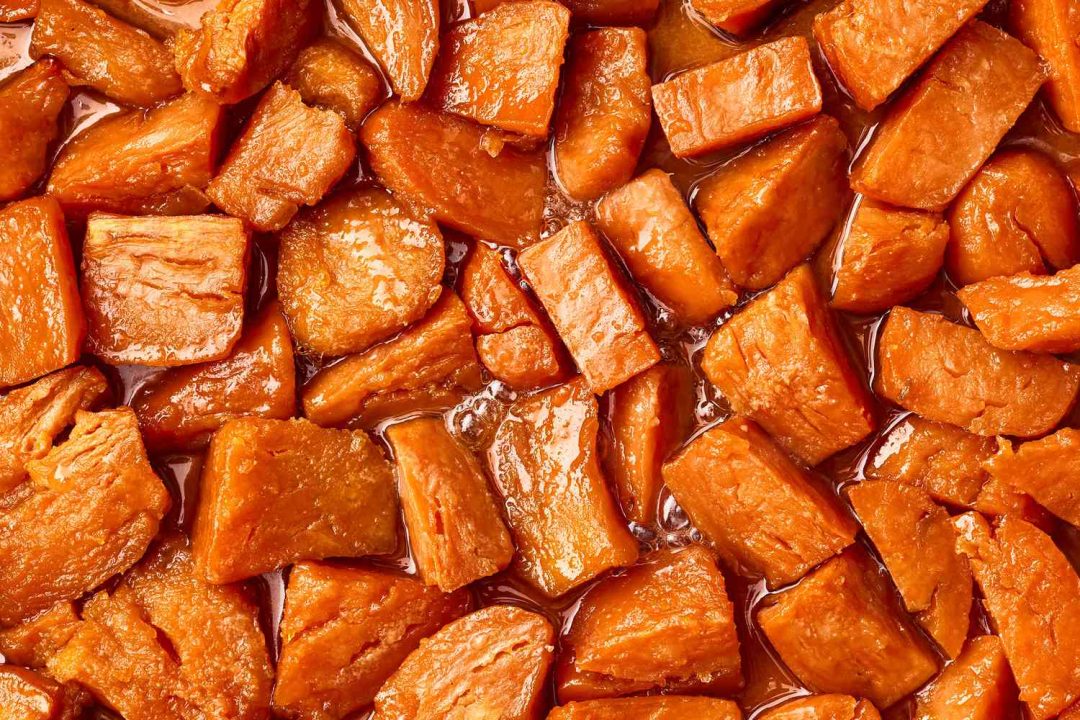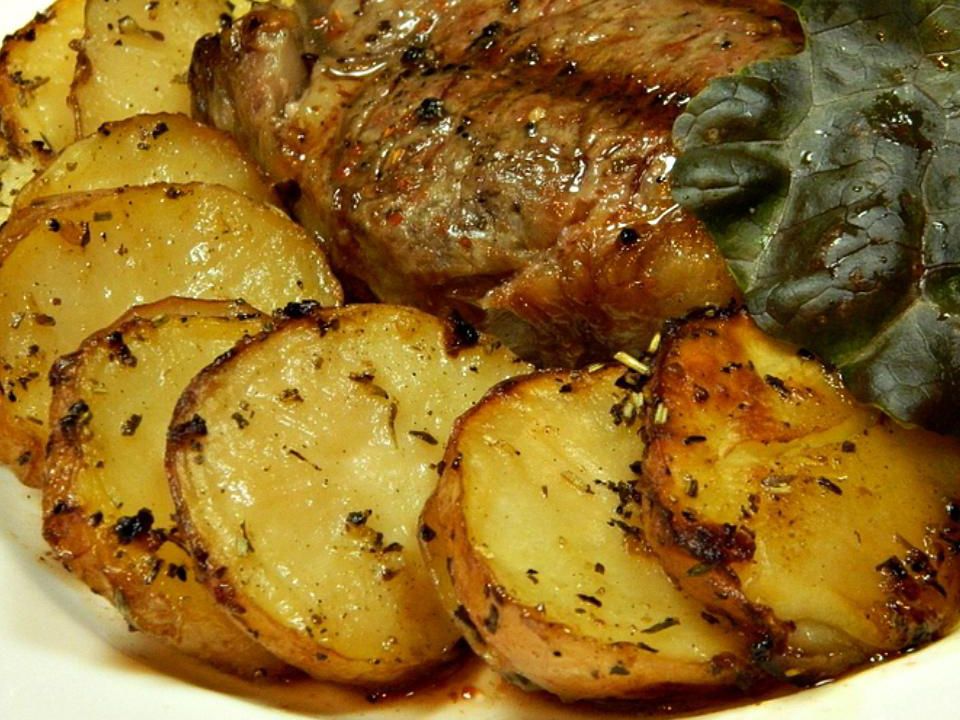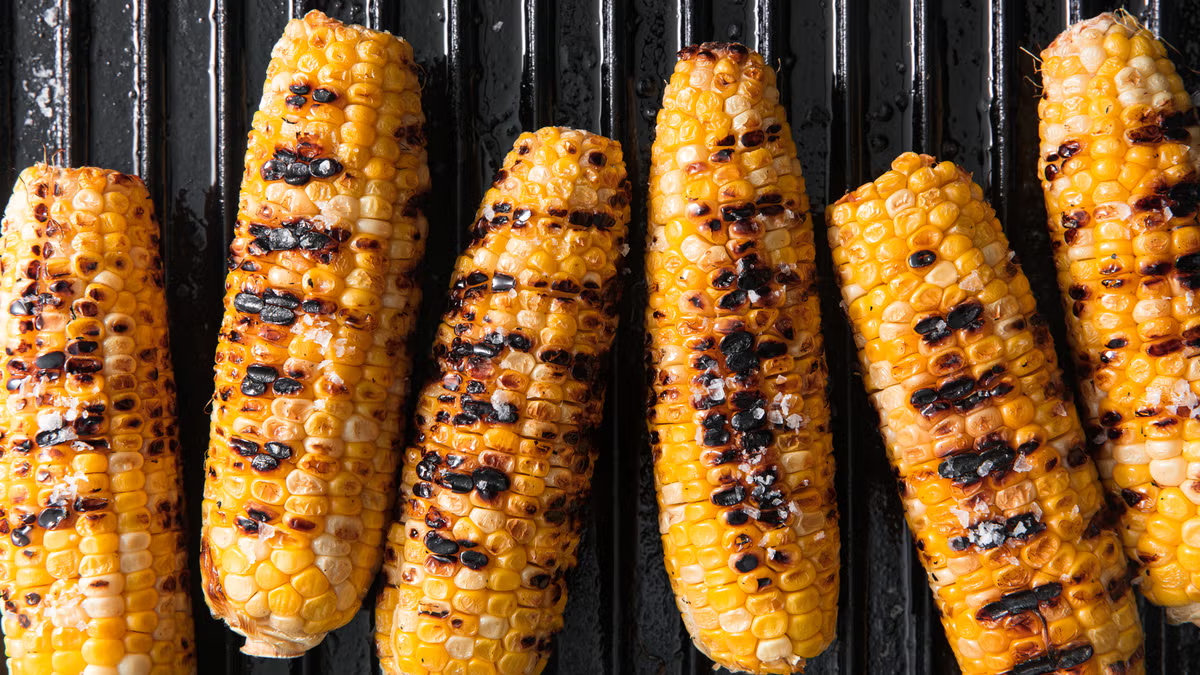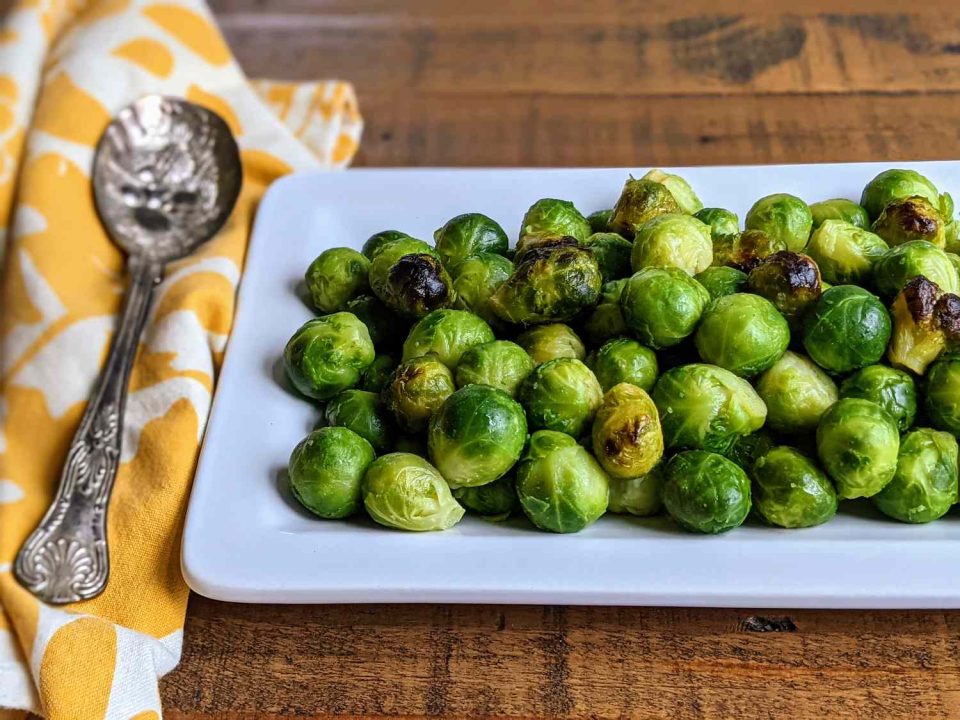Those interested in pairing the perfect wine with their Thanksgiving feast should take heed that the endeavor need not be complex. Below are some sommelier-driven suggestions for the ideal vinicultural-epicurean experience this holiday.

Stuffed Turkey
Infused with aromatic herbs like sage and thyme, Stuffed Turkey is a flavorful and popular roasted dish for the holiday. The cranberry and Italian sausage ingredients often included add depth and richness. Consider pairing a medium-bodied white wine like Greco, with its crisp acidity and subtle fruit notes, complements the turkey’s flavors without overpowering them. Alternatively, a light-bodied red like Pinot Noir, with its delicate fruit and earthy undertones, pairs well with the herbal and savory elements of the dish.

Deep-Fried Turkey
For deep-fried turkey, a crisp white wine like Marsanne or a light-bodied red like Barbera will complement the rich, greasy texture of the dish. The high acidity in these wines will cut through the oiliness, while their fruity notes will balance the salty and slightly sweet flavors from the brown sugar rub. A sparkling wine can also be a refreshing pairing choice.

Candied Yams
This sweet and tender dish is made by roasting sliced yams with a generous coating of brown sugar and a sprinkle of cinnamon. The yams are baked until they are soft and caramelized, resulting in a delightful contrast of textures – a crispy, glazed exterior and a smooth, creamy interior. A comforting and indulgent side dish. The sweet and earthy flavors of candied yams, roasted with brown sugar and cinnamon, pair well with the aromatic and floral notes of Moscatel de Alejandría, a white grape variety known for its sweet and perfumed character. Alternatively, the red grape Nerello Mascalese, with its bright acidity and red fruit notes, can complement the dish’s caramelized sweetness and provide a refreshing contrast.

Mashed Sweet Potatoes
This creamy and comforting side dish is made by boiling or steaming sweet potatoes until tender, then mashing them with butter, chicken stock, and salt to create a smooth, fluffy texture. The natural sweetness of the potatoes is enhanced by the rich butter and savory stock, resulting in a delightful balance of flavors. The creamy and sweet mashed sweet potatoes, simmered with butter and chicken stock, pair well with a white Moscatel de Alejandría or a red Nerello Mascalese. The Moscatel’s floral aromatics and subtle sweetness complement the dish’s richness, while the Nerello Mascalese’s high acidity and red fruit notes cut through the potatoes’ smooth texture, creating a balanced and enjoyable pairing.

Roasted Potatoes
Simple yet delicious, this side dish is prepared by cutting potatoes into wedges or cubes, tossing them with olive oil and salt, and roasting them in the oven until crispy on the outside and tender on the inside. The high heat of roasting brings out the natural sweetness of the potatoes while creating a satisfyingly crunchy texture. WINE PAIRING For roasted potatoes seasoned with olive oil and salt, a crisp white wine like Cortese or a light-bodied red like Pinot Noir would pair well. The high acidity and citrus notes of Cortese can cut through the richness of the potatoes, while the earthy and red fruit flavors of Pinot Noir complement the savory, roasted taste. Both wines have a balanced structure that won’t overpower the simple yet satisfying dish.

Cornbread American
Cornbread is a classic baked dish made with cornmeal, eggs, milk, sugar, and salt. The batter is mixed until smooth and then baked until golden brown. The resulting bread has a slightly sweet flavor and a tender, crumbly texture. Cornbread is often served as a side dish or enjoyed on its own, warm from the oven. The sweet and savory flavors of cornbread, made with corn meal, eggs, and milk, pair well with the aromatic and floral notes of Moscatel de Alejandría, a white grape variety. The wine’s sweetness complements the dish’s subtle sweetness from the sugar, while its light body balances the bread’s tender crumb. Alternatively, the red grape Agiorgitiko, with its medium body and fruity character, can provide a pleasant contrast to the cornbread’s richness.

Grilled Corn
An easy yet delicious dish, this side is made by cooking fresh corn on the cob over an open flame. The corn is typically brushed with a mixture of butter and olive oil, then seasoned with salt to enhance its natural sweetness. The high heat of the grill caramelizes the kernels, creating a slightly charred, smoky flavor and a tender, juicy texture. The grilled corn, with its smoky, buttery flavor and slight saltiness, pairs well with a crisp white wine like Malvasia. This light-bodied wine has a refreshing acidity that cuts through the richness of the butter and complements the sweetness of the corn. Alternatively, a light-bodied red wine like Pinot Noir, with its delicate fruit notes, can also enhance the grilled flavors without overpowering the dish.

Roasted Brussel Sprouts
A savory and flavorful dish, this side is made by roasting halved Brussel sprouts with garlic, onion, and olive oil until they are tender and caramelized. The high heat of roasting brings out the natural sweetness of the Brussel sprouts while creating a slightly crispy texture on the outside and a soft, tender interior. Roasted Brussel Sprouts pair well with Sauvignon Blanc, a crisp white wine with herbaceous notes that complement the vegetable’s earthy flavors. The high acidity of Sauvignon Blanc cuts through the richness of the olive oil and balances the dish’s saltiness. Alternatively, a light-bodied Cabernet Franc with its subtle spiciness can enhance the garlic and onion flavors, while a sparkling wine’s effervescence refreshes the palate between bites.

Dessert Pies or Tarts
When it comes to fall desserts, apple pie is a timeless classic. The combination of a crispy crust and sweet, spiced apples captures the essence of the season. Pears, pumpkins, or berries are also wonderful alternatives to highlight the flavors of fall in your dessert creations. Fall dessert pies and tarts are often sweet but not overly so. Baked fruit and spices pair wonderfully with aromatic, lightly sweet wines. Moscato d’Asti or a late-harvest Gewürztraminer are perfect choices, offering just enough sweetness with hints of spicy notes to compliment the desserts.

‘Spicy’ Wine
According to vinicultural expert Sylvia Ba, ‘spicy’ wines also pair well with Thanksgiving. Spiciness in wine is one of those intriguing characteristics that can elevate a wine and add complexity to it. It’s a sensation that parallels the heat from a chili pepper or the warmth from a touch of cinnamon. When we talk about spicy wine, we’re referring to wines that evoke a sensation of warmth and tingling on the palate, much like certain spices do.
When it comes to wine and food pairing, the key is to complement and balance the wine’s spicy notes with the right dishes. For example, pairing Syrah with pepper-crusted meats like Turkey and Ham, which are Thanksgiving staples, can enhance the black pepper notes in the wine, creating a cohesive and robust flavor experience. Gewürztraminer can be a great match for dishes that have a touch of sweetness and mild spice, like a honey glazed ham with cloves. The ginger-like spice in the wine enhances the overall richness of the dish. Similarly, Zinfandel pairs well with hearty, smoky dishes like a smoked turkey, where the clove and pepper notes in the wine complement the smoky flavors of the meat.
White with spicy notes, like Grüner Veltliner or Gewürztraminer, pair well with turkey stuffing that often has an its intricate balance of sweet, sour, salty, and spicy elements. These can also be an excellent match for dishes with a touch of sweetness or mild spice like sweet potato casserole or a butternut squash mash—foods that will help to highlight the spicy characteristics of the wine.

What is a Spicy Wine?
When we talk about spicy wine, we’re referring to wines that evoke a sensation of warmth and tingling on the palate, much like certain spices do. This spiciness can manifest in various forms.For instance, a wine with a peppery character can remind one of the sharp bite of black pepper or the more subtle heat of white pepper. On the other hand, a wine that exudes baking spices flavors might reveal the sweetness and warmth of cinnamon or nutmeg, adding a familiar touch to its profile. Other wines might bring to mind the slightly sweet and woody heat of cloves or ginger, offering yet another layer of spiciness.
Certain wines are particularly known for their spicy profiles. Syrah, for example, is the most common spicy wine, known for its black pepper notes, especially in wines from regions like the Rhône Valley in France or the Barossa Valley in Australia. Meanwhile, Grüner Veltliner, the iconic Austrian white wine, displays a white pepper spiciness, setting it apart among white wines. Gewürztraminer, with its exotic and aromatic profile, often carries a ginger-like spiciness, along with floral and lychee notes. In fact, “Gewürz” means “spicy” in German. On the other hand, Zinfandel, a robust and often fruity red, can express a range of spicy characteristics, from cinnamon to cloves, depending on the region and winemaking style.
The spiciness in wine can be attributed to several factors, primarily the grape variety and the winemaking process. The inherent spiciness in certain wines often comes from the grape variety itself due to specific chemical compounds present in the grapes.
Rotundone is the primary aroma compound responsible for peppery notes in wine. Found in grape skins, rotundone is particularly prominent in varieties like Syrah and Grüner Veltliner, making the wines feel peppery and adding a layer of complexity to their flavor profiles. Similarly, 4-vinylguaiacol is known for contributing clove-like aromas and flavors. It’s more commonly found in wines made from grapes that have a higher phenolic content, influenced by the grape variety and growing conditions.
Beyond the grape variety, the winemaking and aging processes can also play a significant role in developing spiciness in wine. One of the key factors here is the use of oak barrels. When wine is aged in oak barrels, it can take on additional spicy characteristics. The type of oak, the level of toasting, and the length of aging all influence the final profile. American oak, for example, tends to impart more vanilla and coconut notes, while French oak can contribute subtle spices like clove and cedar. The interaction between the wine and the wood allows for the development of complex flavors that enhance the wine’s overall spiciness.
Spiciness in wine is a multifaceted and enchanting characteristic that adds depth and excitement to the wine. Whether it’s the peppery punch of a Syrah or the warm, gingery notes of a Gewürztraminer, spicy wines offer more complexity to the wine and pleasure to the overall tasting experience.
Whether spicy wine or otherwise, choosing the perfect wine to accompany your Thanksgiving feast can elevate the dining experience, complementing the rich flavors of the holiday meal. Whether you’re serving roasted turkey, savory stuffing, or a variety of sides, the right wine can balance and enhance each dish. With a thoughtful wine selection, every holiday dish becomes a flavorful journey
By the Vinicultural Experts at “VinoVoss”—an AI Sommelier smartphone app and web-based semantic wine search and recommendation system developed by BetterAI. The user-friendly online platform picks the perfect wine every time, for any occasion courtesy of a highly advanced artificial intelligence assist. Learn more at www.vinovoss.com.
